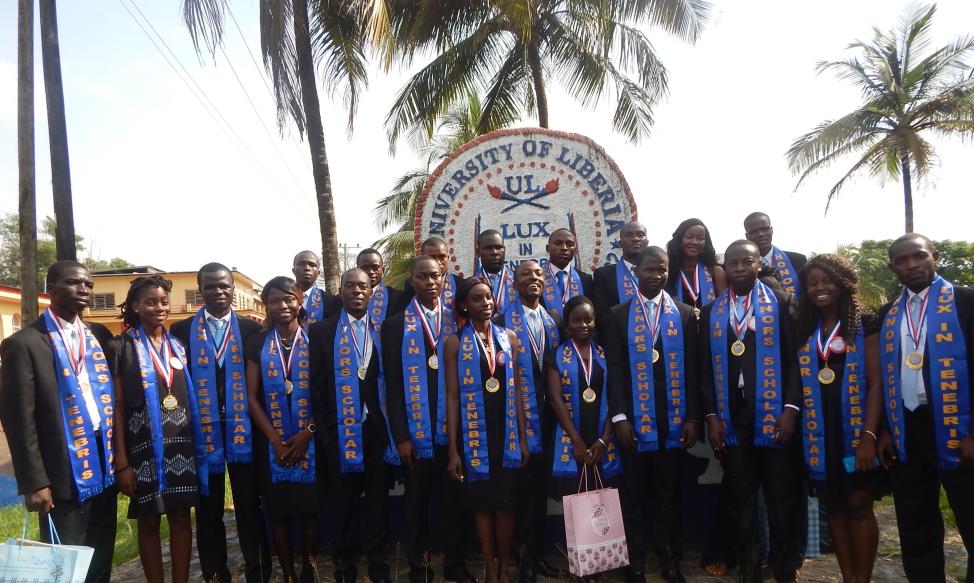MONROVIA, Montserrado – The University of Liberia has graduated 24 students from its undergraduate honors program, the Lux in Tenebris Scholars Program.
The students are from various colleges and departments of the university who have maintained a grade point average of 3.5 and above.
Started in 2011 as a vision of the university’s outgoing President Emmett Dennis, the program aims to build the research capacity of the honors scholars and provide them with opportunities to build character development and leadership skills.
This year, the program included the valedictorian of the 2016 graduating, Lexanndine T. Taylor of the Business College, the valedictorian of the Thomas J. R. Faulkner College of Science and Technology, and the salutatorians of three of the six colleges of the university.
Mamawa Freeman Moore, the program’s director, said the scholar program has continued to serve as a platform to challenge the university’s brightest students towards academic excellence.
“Additionally, the honors program teaches students to give back to humanity through service to the university and their communities,†Moore said.
She said the program has made tremendous strides since it began five years ago, increasing its enrollment from 28 students to 104 now. “Female enrollment has also increased from seven percent to 27 percent,†she added.
The program works to provide internship opportunities for the scholars and “four of the scholars currently are interns at the Central Bank of Liberia,†Moore disclosed. In a climate that can be tough for students to find jobs after graduating, the experience of working for top companies and government agencies can be a significant boost for the scholars’ employment prospects.
One of the scholars, Abel Neewhord, who also serves as the president of the program’s student group, expressed his appreciation for the internship opportunities provided to the students. Neewhord said he also received an advantage over regular undergraduate students through a one-one mentorship.
“We are opportune to have honors advisers who give us special attention in areas we have problems with understanding in our studies,†he said.
In addition to the internship and their regular undergraduate courses, Moore said each scholar is also required to take at least four honor level courses within their individual colleges and participate in at least 20 community service projects.
Moreover, they also complete short certificate courses to build their research, communications, and technical writing skills.
But getting accepted into the program is not easy. Besides a grade point average requirement of 3.50, Moore said students participating in the honors program are thoroughly vetted through an application process that includes an essay and an interview.
Students who do not maintain the required grade point average for two semesters are automatically dropped from the program, although Moore said since 2011, none of the scholars have failed to maintain that standard.
There are other benefits for students who exceed the minimum requirements. Moore said those who achieve a 3.80 grade point average or higher receive a monthly stipend of US$100 and a waiver of all tuition and fees at the university.

The University of Liberia’s outgoing president, Emmett Dennis, was honored for his support to the Lux in Tenebris Scholars Program. Photo: Gbatemah Senah
She praised the university’s outgoing president, Emmett Dennis, for having the vision to institute the program, which she hopes will grow into a full honors college. Dennis, who was honored for his support of the program, is expected to retire at the end of the year.
Featured photo by Gbatemah Senah





